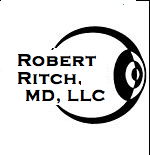



 |
 |
 |
 |
Click above to change
contrast or text size.
| CAQs: Activities |
|
Can I go scuba diving after a filtering procedure? (answer by Dan Eisenberg, MD (a PADI rescue diver) and Michael Yablonski, MD, PhD, University of Nebraska Medical Center.) Every 33 ft of water increases the external pressure by 1 atmosphere. During descent, the diver experiences face mask "squeeze" as the internal mask pressure drops relative to outside pressure. The diver "equalizes" this pressure by blowing into the mask via the nose. Failure to do so will result in extreme pain. If ignored, this differential will burst subconjunctival vessels and produce a total subconjunctival hemorrhage. Most divers prefer to equalize, but still leave a little negative pressure to help press the mask onto the face. The most difficult time is the first 33 ft because the pressure doubles. The real question is can a filtering bleb withstand this negative pressure? The thin-walled blebs seen after trabeculectomy with mitomycin-C probably cannot. A diffuse bleb may expand so much as to deflate the eye, possibly causing choroidal hemorrhage. If this should happen underwater it could be fatal. Any unexpected event underwater can lead to disorientation and panic. An inexperienced diver might not survive an underwater choroidal hemorrhage. If you are very experienced (more than 100 dive hours) and the bleb is solid, you might be able to dive safely by frequent mask equalization on descent, especially in the 33 ft zone. Your mask should be the newer low-volume type. The safest depth to dive would be the 60 to 90 ft zone to minimize pressure changes. If the bleb is thin and you are an occasional diver (less than 10 dive hours) then it is less likely that you would have the skill to properly equalize the mask. My doctor has told me that an operation to correct open-angle glaucoma can have some complications. Some of these can be bleeding, infection, and blindness. Because of this he is very conservative in his treatment and will only operate if truly necessary. I am very concerned about this should I ever need an operation,but from all the reading I have done on this subject,I have heard that these operations are very successful. I hope my doctor will not delay in my needing an operation until my vision has been seriously impaired. Needless to say, either way I am worried about the outcome of any future operation. Any intraocular surgery can result in bleeding, infection and blindness. For many years, and actually, until quite recently, glaucoma surgery was considered fairly hazardous and generally regarded as a last resort after the failure of medication and laser treatment to control the disease. Many ophthah-lmologists are still conservative when it comes to glaucoma surgery. However, in the past few years the success of surgery for open-angle glaucoma has markedly improved. The first major reason for this is the use of antimetabolites, such as 5-fluorouracil and mitomycin C, to decrease postoperative scarring. This has resulted in a significant improvement in the success rate of surgery, particularly in those conditions with previous intraocular surgery, such as cataract extraction, patients with previously-failed filtration surgery, younger patients, black patients, and patients with complicated forms of glaucoma or glaucoma associated with uveitis. The second advance has been post-laser suture lysis. With this procedure, sutures which are buried under the conjunctiva and which closes e the flap in the wall of the eye after trabeculectomy has been performed, can be cut using a laser and a special lens. This has allowed glaucoma surgeons to make the flap tighter at the time of surgery. This prevents too much fluid leaving the eye, which can result in a number of undesirable complications, particularly a flat anterior chamber, which can be a surgical emergency. As a result of these advances, the success rate has significantly increased and the complication rate has significantly decreased. Hemorrhage is extremely uncommon in the eye, which has had no previous surgery. It s slightly more common in eyes which have had previous surgery and the chance of its occurring increases with increasing myopia (nearsightedness) in such eyes. Late infections of the filtration site are becoming more common with the use of antimetabolite. The safety of glaucoma surgery has increased significantly in the past few years and concomitantly, our awareness of the side effects of long-term medications has also increased. AT the present time, there is an ongoing multi-institutional study sponsored by the National Eye Institute, known as the Collaborative Initial Glaucoma Treatment Study (CIGTS). This study compares the safety and efficacy and the effect on quality of life of initial glaucoma surgery compared to initial medical treatment in patients with newly discovered open-angle glaucoma. Nevertheless, if the glaucoma is uncontrolled and your visual field is getting worse, the chance of an adverse effect from surgery is less than the chance of your losing vision from glaucoma, and glaucoma surgery is generally advisable in such circumstances. R.R. Have a question for the doctor? Ask him using the Online Question Form. © Robert Ritch, MD, LLC Permission to copy all or part of this work and post to other Web sites is granted, provided that the copies are not made or distributed for resale, and provided that the AUTHOR, COPYRIGHT and NO WARRANTY sections are retained verbatim and displayed as is. Disclaimer: The authors provide no warranty. The information is provided to assist understanding of glaucoma. It does not replace an eye examination, and is not meant as a guideline for treatment of any individual person suffering from glaucoma. Your feedback is welcome. |
Robert Ritch, MD, LLC
455 East 57th Street
New York, NY 10022
(212) 477-7540
Contact & Directions